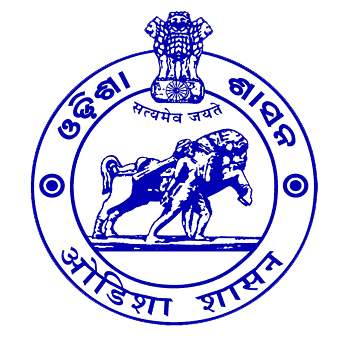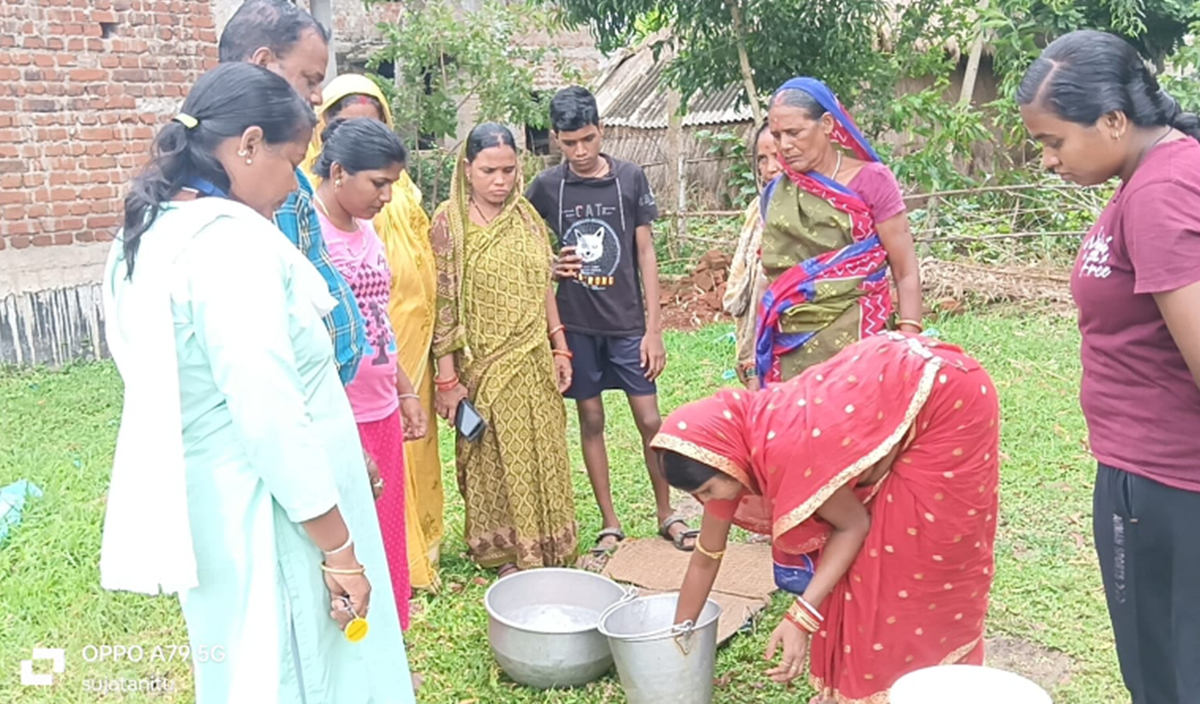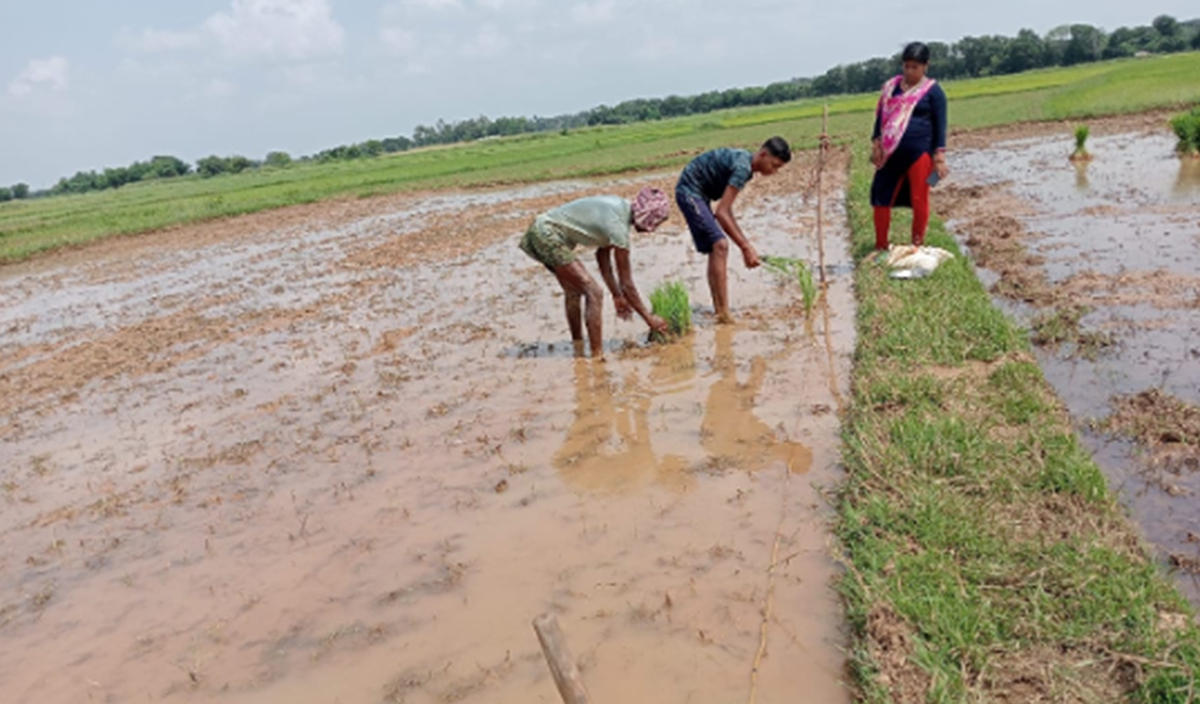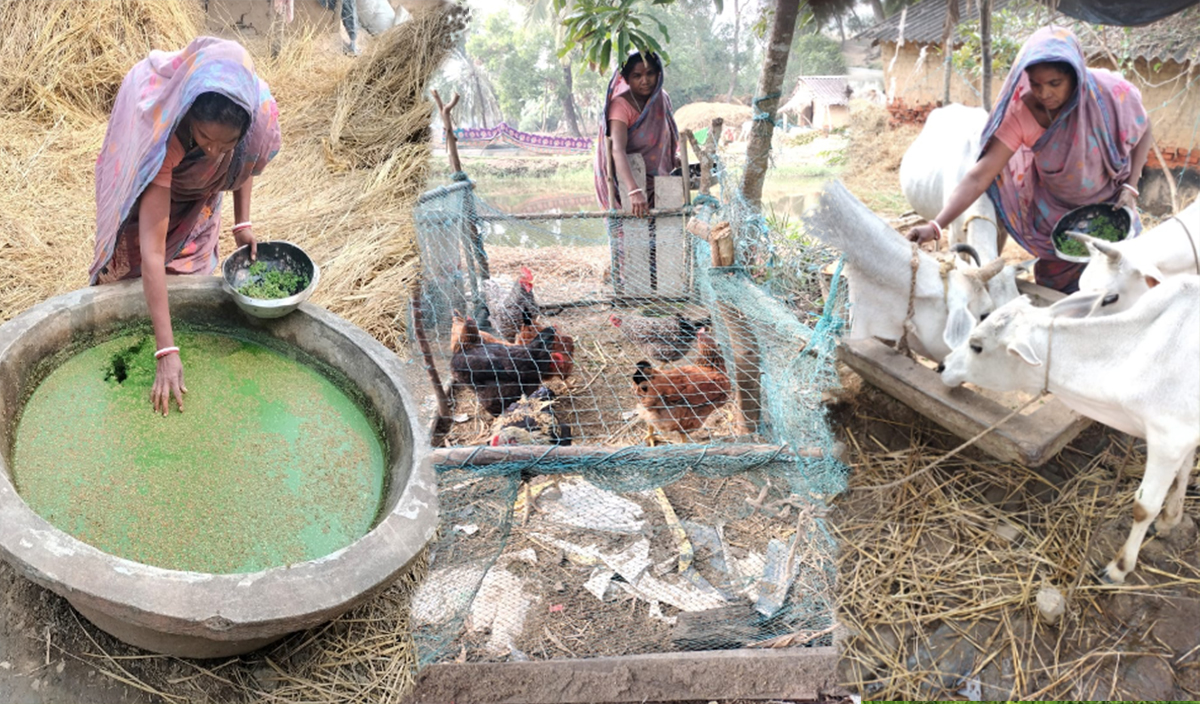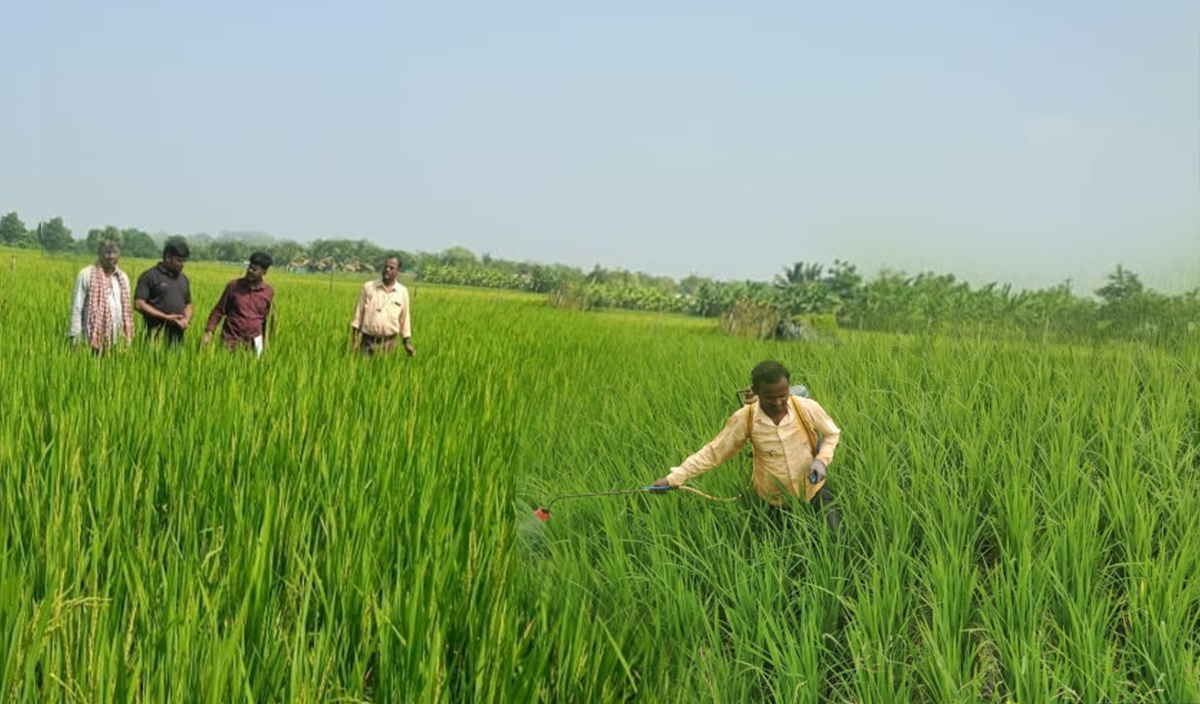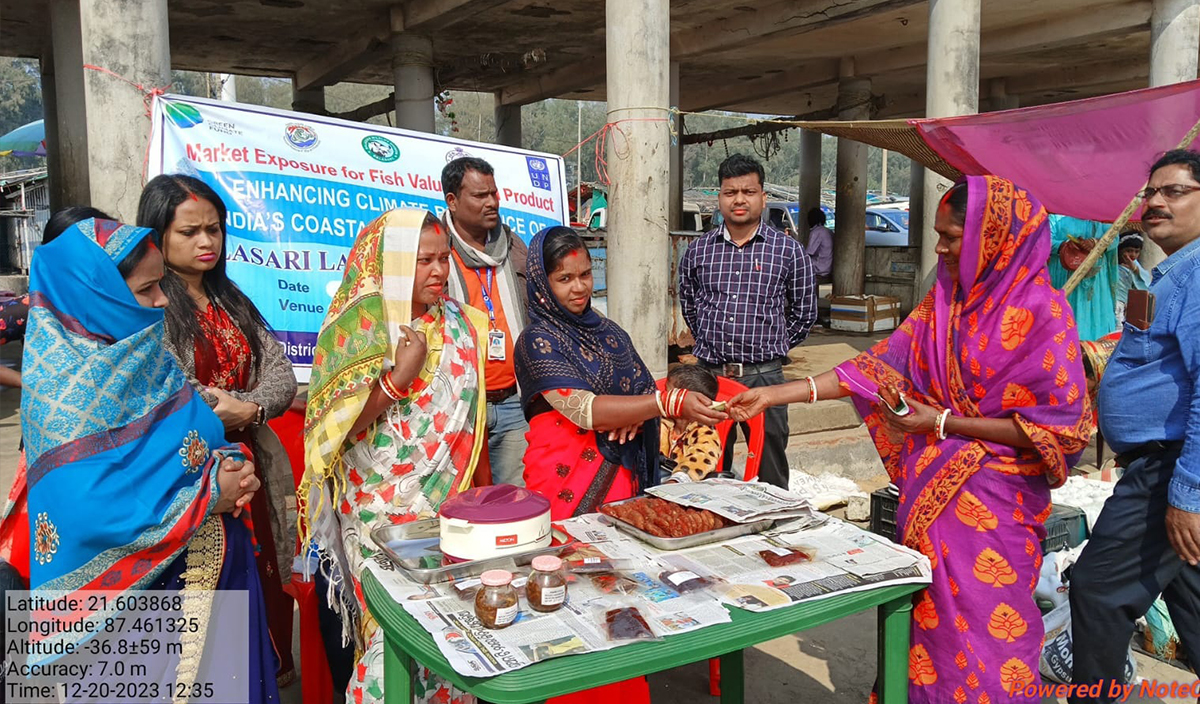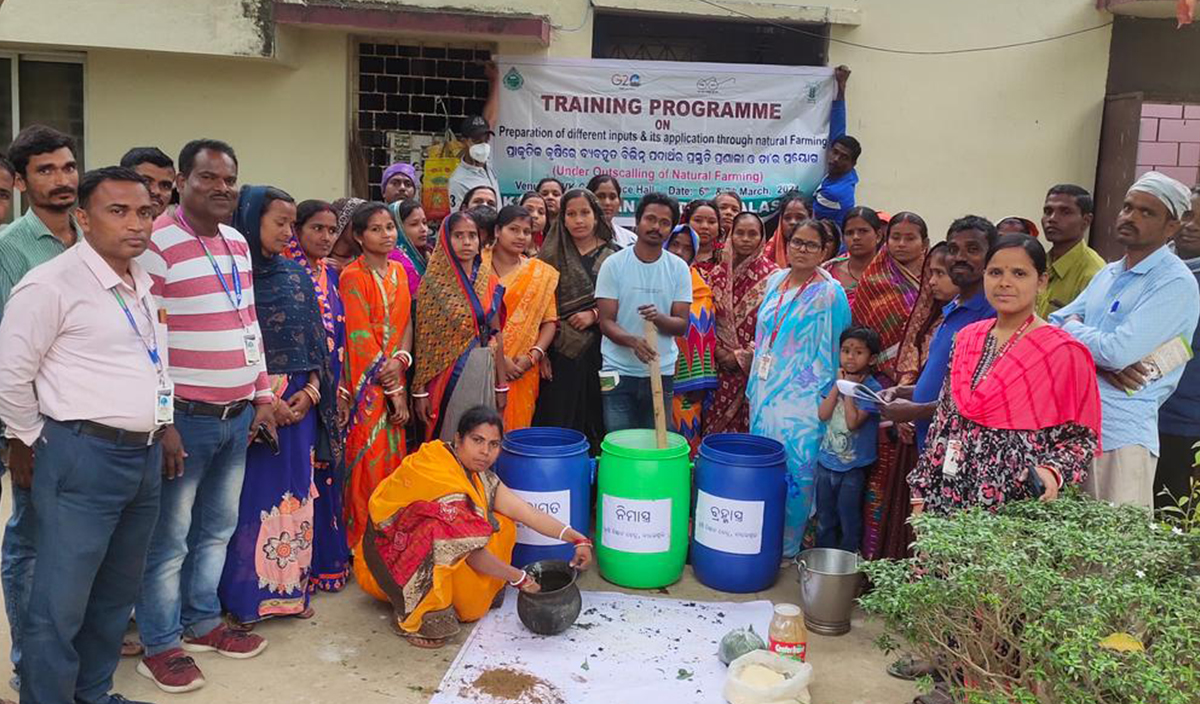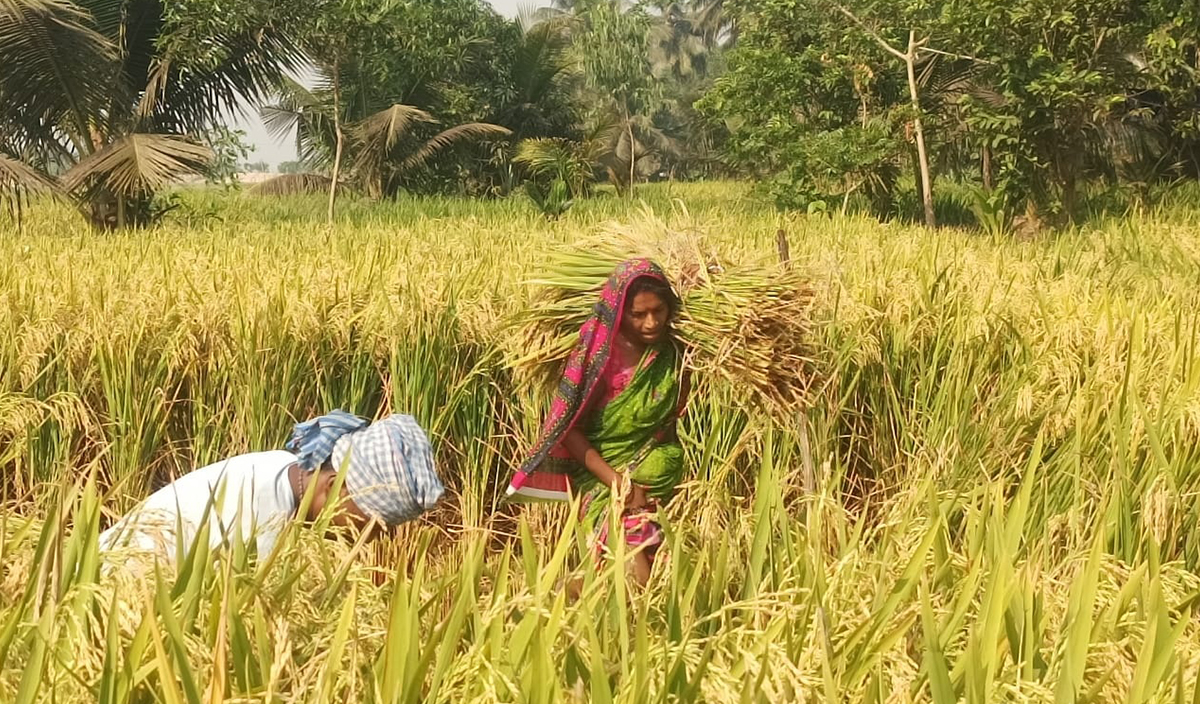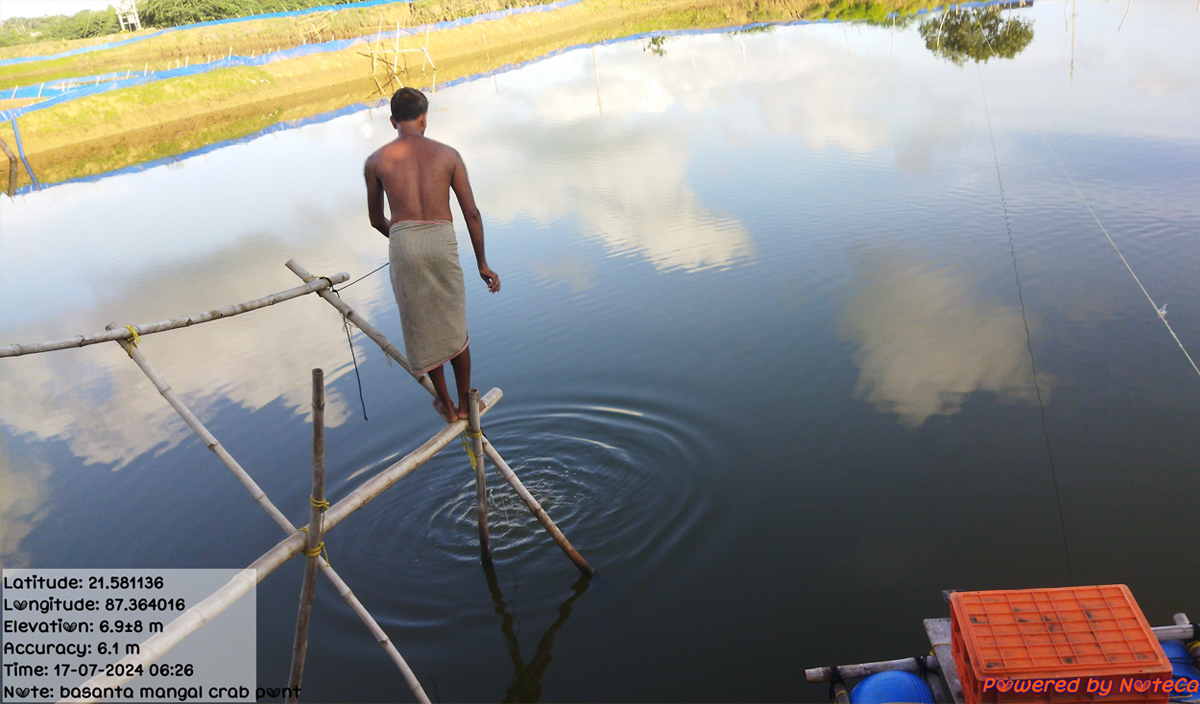Empowering Women Through Beekeeping: The Story of Subhadra Jena
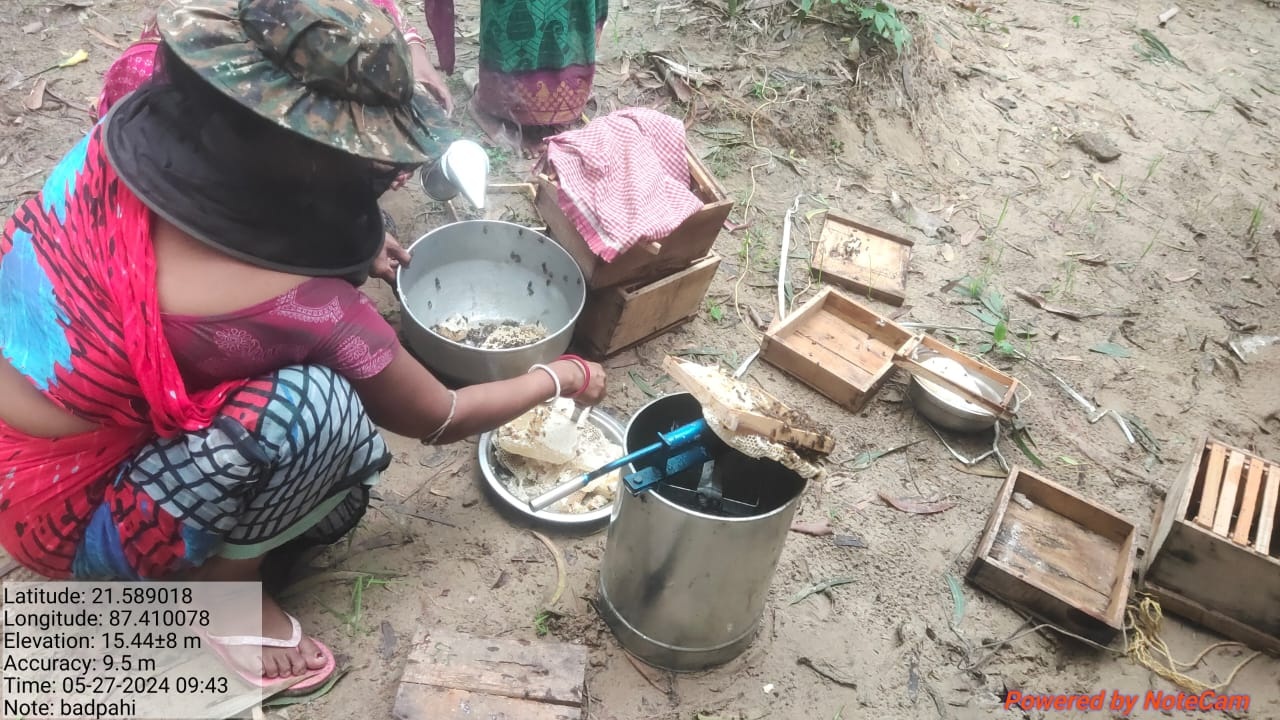
In the Balasore district of Odisha, India, the coastal village of Ransinghpur faced its share of economic struggles. Farmers and day laborers lived without any savings to fall back on. Without any secondary jobs, many families lacked a stable source of income, especially during strained financial periods. The ECRICC project sought out struggling communities like this one and implemented beekeeping as an additional income source, allowing families to build a sustainable source of income.
Shifting the Firmament
Subhadra Jena, one of the migrant daily wage workers in Ransinghpur, struggled to make ends meet, but her life turned for the better with the introduction of the ECRICC project. During her low paying small-time job, she along with her husband Raghunath Mahanty grappled together to tend to their family while balancing taking care of their infant child. With the job of beekeeping, Subhadra was able to bring about positive change in her family's life. She was apprehensive in the start, unaware of the procedure and potential obstacles. But she proceeded with the training offered and was pleasantly surprised with the end result.
Changing Lives with Beekeeping
With the ECRICC project, Subhadra and other women in the village got support in form of beehive boxes from the Odisha Khadi and Village Industry Board. These women received basic training on hive management, honey extraction and environmental practices for a period of 7 days. This training not only provided them with the technical know-how, but also helped in increasing their self-esteem. They were instructed on how to beekeep, set up hives and self-extract honey, enabling them to be self-sufficient in managing the process.
Climate champions continued to provide support and monitored the progress of the beekeeping activities. They also assisted in marketing honey through nearby traders to make sure the women had market access. The women slowly started to recognize the new venture with which they could benefit themselves.
The Results
For Subhadra, everything changed. By the end of the season, she had harvested 5 liters of honey from 3 beehive boxes, which equated to an income of ₹1,500. This was money that greatly helped her family’s finances. With this, Subhadra was able to support her baby with better food and healthcare. The money she was making through beekeeping gave her a lot of hope for the future. She knew she could help her family in tough times.
The impact was inspiring even outside the success that Subhadra achieved. As an average, every family in Ransinghpur did manage to harvest 5 liters of honey per season and make ₹1,500. This new and steady source of income was beneficial to many underprivileged farmers and landless laborers, which helped support their families. Beekeeping is simple, cheap, and environmentally friendly, making it very easy for farmers to adopt without interfering with their primary business.
Addressing Issues
As apparent from the analysis, the women faced many obstacles during the implementation of the Program. At first, fear of the unknown and inexperience made it difficult for most women to participate in the Program. Psychology indicated that overcoming one’s fear was imperatively central to the success of the program. For this, the ECRICC project supplied protective kits, alongside inductions and training that prepared the women for actual participation. The Climate champions also assisted by providing practical support to enable the women to adopt their new roles and know that they were capable of functioning as beekeepers.
Subhadra's reverie towards the past
In reflection, Subhadra said, “This initiative has remarkably changed our lives. I can now serve my baby’s needs better, and if we are able to earn more, we can aspire towards a more promising future. This marks the beginning of a new path for us, and I am happy to be a part of this change.”
Challenges to Sustainability
Raising bees and selling honey is a great way to democratize sustanability, and that is what lived in Subhadra. She did not just change her life, she inspired many other women to take up beekeeping in Ransinghpur. As the number of women farmers increased, the community started moving towards more sustainable and resilient livelihoods. Subhadra’s shift was remarkable; it created an inspiration for many others because it made it clear that with proper help and education, entire communities can be saved economically and environmentally at the same time.

